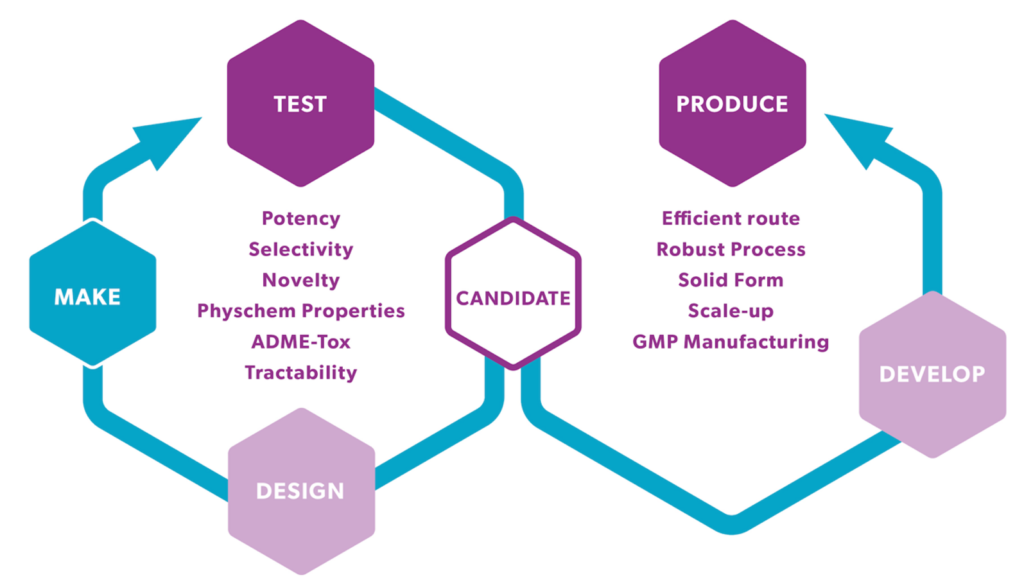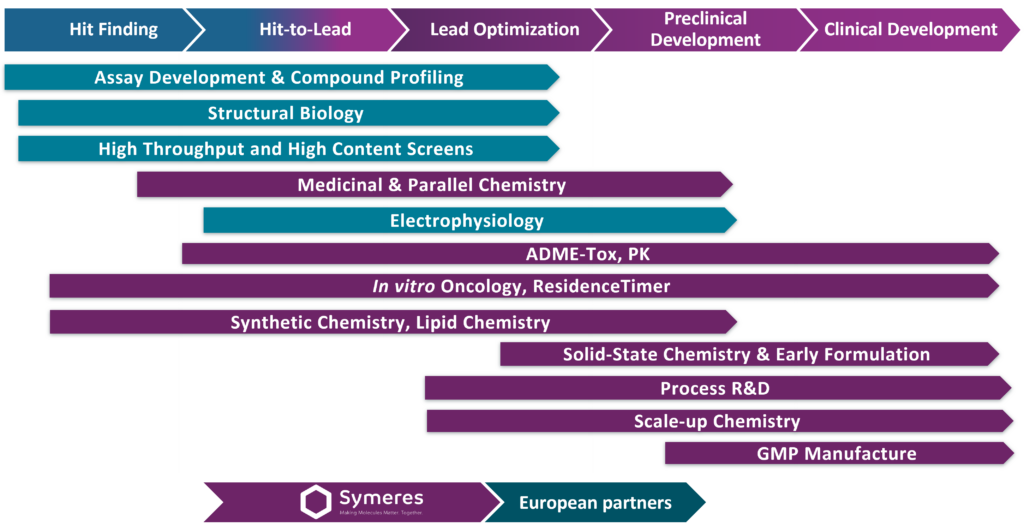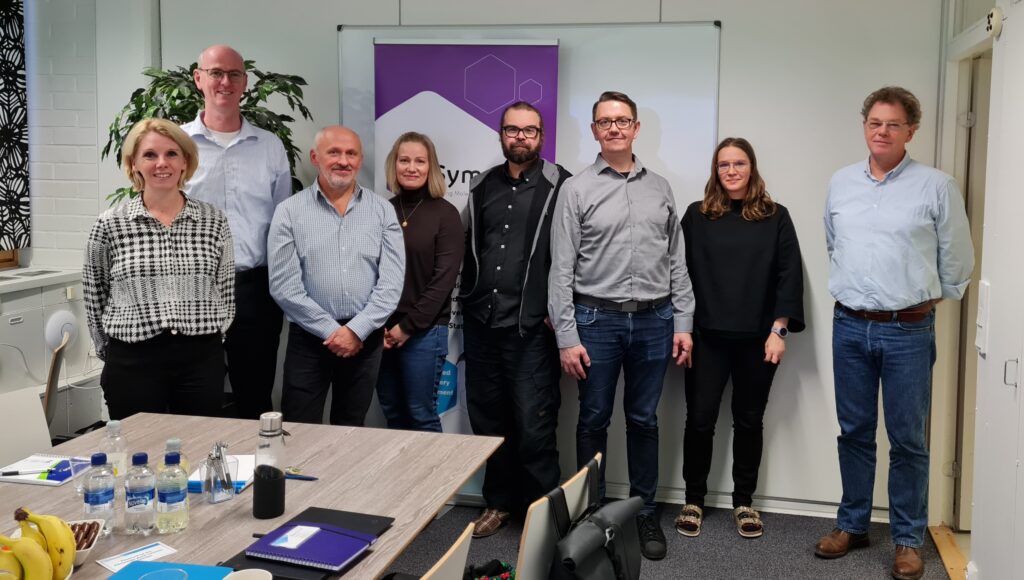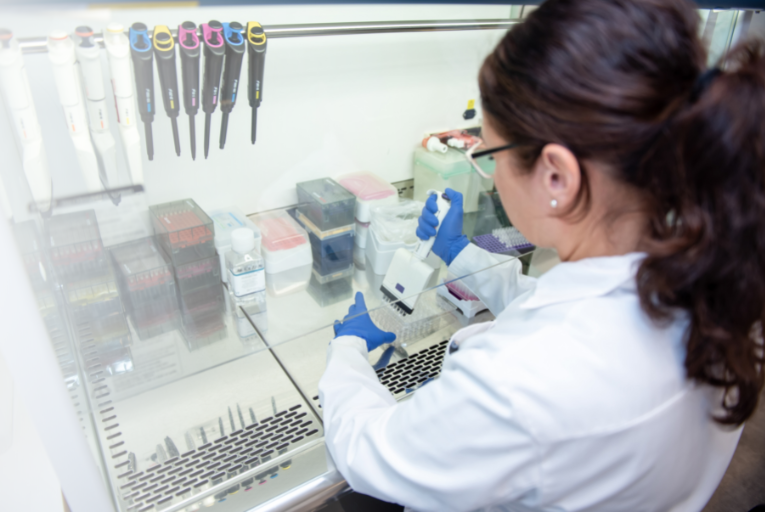Throughout drug discovery and development, there are numerous scientific hoops to jump through to get a new, safe, and effective drug to improve people’s lives. Admescope has been part of the Symeres organization since late 2020; perhaps you are not aware about our integrated drug discovery (IDD) services with over 600 scientists who are available to support your projects from hit finding through preclinical development, until the first clinical studies. This blog post describes what you can access today, within our network, and how we operate to support our customers. We are excited to offer many more capabilities than standalone ADME-Tox/in vivo DMPK research provided by Admescope.
In general, integrated drug discovery projects involve optimizing numerous parameters, and multiple design-make-test iterations are required. These need to be coupled with timely decisions, based on knowledge derived from robust scientific data. This discovery approach allows us to select the best candidate for development and supply drug substance and drug product. Symeres can help with all the steps included in this process (Fig. 1.).

Figure 1. Symeres platforms for integrated drug discovery and development.
The collaboration starts with a detailed discussion with the client. With a deep understanding of the goals, we’re able to devise suitable approaches and build the most effective program together. Whatever we do, the client comes first, and flexibility is one of our strengths. The drug discovery, medicinal and synthetic chemistry and ADME-Tox teams are led by highly experienced directors. The integrated drug discovery team is built according to the needs of the client’s project. The level of our experts’ input can vary from providing synthetic chemistry support, to a fully maturated integrated medicinal chemistry program, with our chemists essentially working as part of the client’s team. Data is continually reviewed by appropriate scientific experts, the client is supported with the data interpretation, and data integration is managed by the discipline leaders. Together, next steps can be proposed for client’s projects. Importantly, in an integrated drug discovery working model, we also take care of compound sample logistics and ship samples to the right locations for further studies.
Alongside in vitro biology, early ADME parameters form a crucial part of multiparameter optimization. After eADME profiling, as the project moves forward, the compounds are typically first tested with rapid PK screens and then with further investigations to fully understand the ADME-Tox/DMPK properties. Eventually, for the preclinical candidate, full IND-enabling in vitro drug-drug interaction (DDI) evaluation is conducted and followed with in vivo metID profiling, as soon as samples are available.
The broad range of services available to our clients is described in Fig. 2. For the services that are not covered by our internal operations , we have partnered with trusted and high-quality collaborators with whom we have worked closely for several years. All the multidisciplinary teams (Fig. 3.) are available with simple contractual arrangements and seamless collaboration allows fast “design-make-test” cycles taking the project towards candidate selection and early development stages.

Figure 2. The available drug discovery and development services within Symeres organization.
The most valuable moments are when we reach the goals set together with our customers. A representative of one recent client wrote: “Please pass along my gratitude to everyone involved. It is a rare opportunity to work on a program that can so greatly benefit people’s lives. You should all feel very proud of the intellectual contributions you have made and know that people’s lives have been greatly impacted by them”.
This kind of feedback is the key driver of our IDD teams towards other successful projects!
Let’s make molecules matter. Together.
Interested in learning more? You can reach out to us to discuss more.

Figure 3. A Symeres MedChem and ADME-Tox integrated drug discovery team meeting with a multi-disciplinary team of Admescope ADME-Tox and In vivo DMPK experts.

